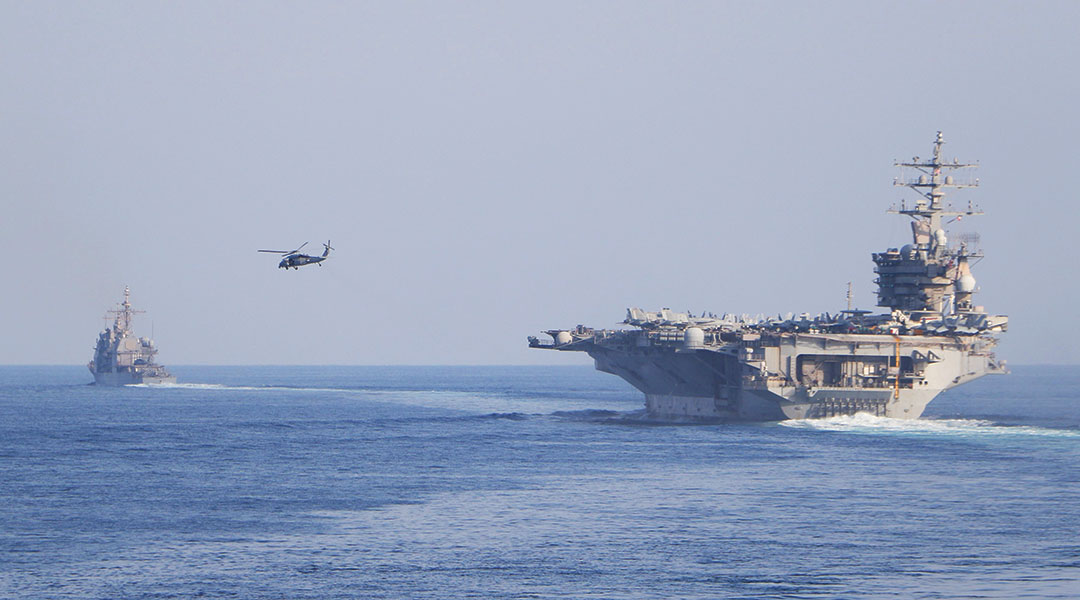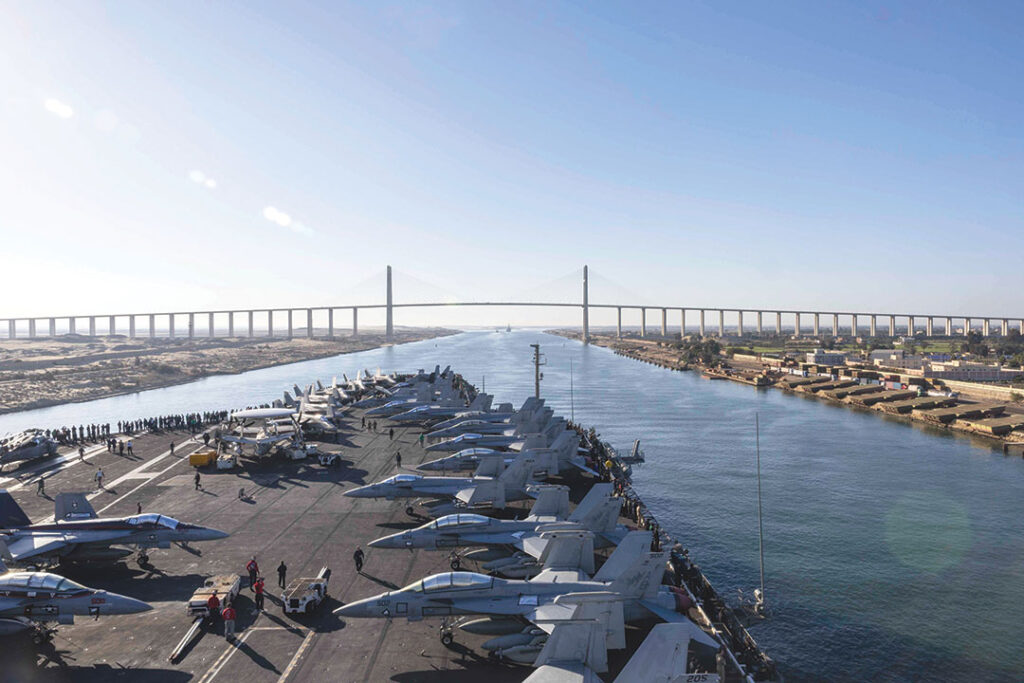The United States and its allies and partners have reiterated that waterways are vital to worldwide shipping and must remain open. To that end, U.S. Indo-Pacific Command (USINDOPACOM), U.S. Central Command (USCENTCOM) and others are stepping up the Combined Joint All-Domain Operations (CJADO) campaign, an international initiative committed to preserving the safe movement of cargo and military vessels through strategically critical oceans and seas.
More than 80% of the world’s goods transported by ships move through Indo-Pacific sea lanes and chokepoints, from the Indian Ocean to the Sea of Japan and include the Luzon, Malacca, Singapore and Taiwan straits. A large amount of cargo also moves through Middle Eastern waters such as the Gulf of Aden, Red Sea, Mediterranean Sea, Strait of Hormuz and Bab el-Mandeb Strait, along with passages as widely separated as the waters off the Horn of Africa and the Panama Canal.
Allied and partner navies, air forces and armies are staging exercises and routine transits to ensure the continued viability of these sea lines of communication. They employ satellites, sensors, uncrewed sea drones and aircraft, and other technologies to enhance maritime domain awareness, and share information to help expose malfeasance.
Gen. Michael Kurilla, then-commander of USCENTCOM, visited the aircraft carrier USS Harry S. Truman as it operated in the Red Sea as part of ongoing operations to protect strategically important waterways.
“The USS Harry S. Truman Carrier Strike Group exemplifies the strength, power projection, and war fighting prowess of the U.S. Navy. The Carrier Strike Group presence in the region reinforces our commitment, alongside our partners and allies, to ensuring maritime security and deterring threats to regional stability. I am inspired by the exceptional work being performed by the men and women serving our nation and our national interests, while supporting peace, security, and stability in the region,” Gen. Kurilla said.

Still, malign actors persist in threatening traditional nautical passageways. In June 2024, for instance, Chinese assailants attacked boats resupplying a Philippine military outpost on Second Thomas Shoal in the South China Sea, slashing inflatable hulls with knives, destroying equipment, confiscating weapons and injuring resupply crew members. A Philippine Sailor lost his thumb in the melee. The assault occurred despite an international tribunal’s ruling in 2016 that the area is within the Philippines’ exclusive economic zone. China rejects the decision and falsely maintains most of the South China Sea is its territory.
China’s disregard for the rule of law is displayed in the aggressive acts by Houthi rebels in Yemen who have attacked ships in the Gulf of Aden, including sinking the bulk carrier vessels MV Rubymar and MV Tutor. The Houthi attacks, which have disrupted global trade and killed at least four seafarers, show the devastating consequences of actions by those who disregard international maritime law.
“Conflict is not imminent or inevitable,” Adm. John Aquilino, then Commander of USINDOPACOM, told Congress in May 2024, “but our potential adversaries have become increasingly aggressive and seek to impose their will at the expense of like-minded nations.”
The CJADO campaign addresses these scenarios and calls for increased collaboration among U.S. Combatant Commands and their international allies and partners to protect strategically important waterways. The Special Operations Command and USINDOPACOM, for example, have practiced operations to counter potential actions intended to disrupt maritime trade.
In a display of integrated deterrence, more than 13 ships and aircraft recently conducted simultaneous freedom of navigation exercises along nine vital sea lanes around the world.

